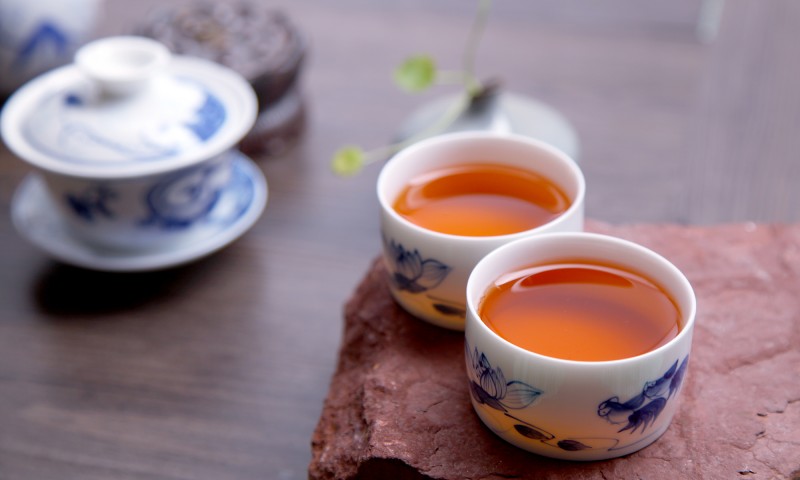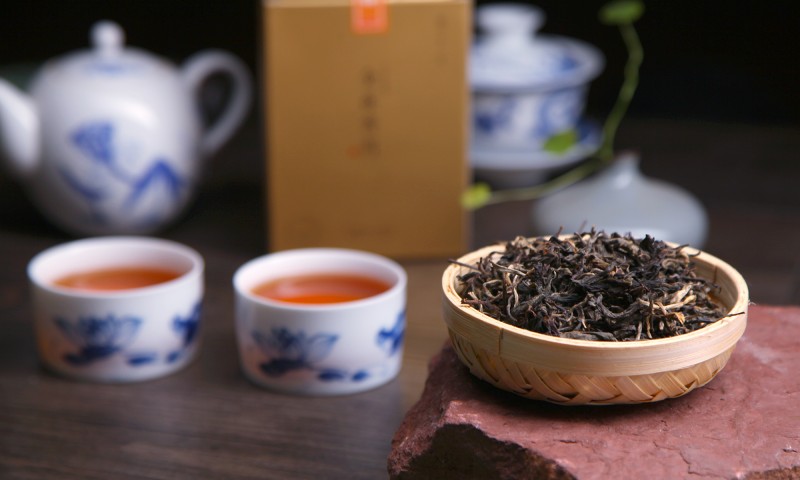"Tea" has become one of the most popular "beverages" today. Tea is not just about quenching thirst on the surface; it also has effects such as aiding digestion, reducing internal heat, improving vision, calming the mind, and relieving thirst. Some tea enthusiasts are unwilling to waste even a trace of tea leaves, perhaps because savoring tea is also a form of spiritual pursuit. In reality, however, situations like using too many tea leaves or failing to drink the tea in time are common, leading to the accidental creation of "overnight tea."
Do you understand "overnight tea"? Can overnight tea be consumed, and what happens if you drink it? A series of questions may leave you confused. Don’t worry—today, we’ll shed light on the "history" of overnight tea.

Can Overnight Tea Be Consumed?
Overnight tea refers to tea that has been left standing for too long, causing most of its vitamins to dissipate. Additionally, the proteins and sugars in the tea can become breeding grounds for harmful microorganisms. Hence, it is generally believed that overnight tea should not be consumed.
Tea typically stays in the human body for about three hours, while strong tea remains even longer. This leads to an accumulation of theophylline, which can disrupt nervous system functions. Tea left standing for too long not only loses its nutritional value but may also spoil, and the tannic acid in it can transform into highly irritating oxides that harm the spleen and stomach, especially in summer, potentially causing gastrointestinal inflammation.
Research shows that the primary change is the further oxidation of tea polyphenols, deepening the color. A clear, green tea, especially when left standing in high temperatures, will lose its green hue and turn increasingly yellow. This is due to the oxidation of tea polyphenols into yellowish-brown or reddish-brown compounds, mainly theaflavins, thearubigins, and theabrownins. These compounds are non-toxic and do not pose health risks.

Hazards of Overnight Tea
Tea contains polyphenols, which easily oxidize into brown colloidal substances—tea stains—in air and water. Tea stains contain cadmium, lead, iron, arsenic, mercury, and other metals. Tea left standing in a cup, such as overnight tea, accumulates more tea stains the longer it is exposed to air.
When tea stains enter the body, they bind with proteins, fats, and vitamins from food, forming precipitates that hinder nutrient absorption. These oxidized substances can also cause inflammation, ulcers, or necrosis in organs like the kidneys, liver, and stomach. Therefore, overnight tea should not be consumed, and tea utensils should be cleaned regularly.
Of course, the hazards are only a minor part. Overall, drinking tea is beneficial to health, and overnight tea also has its merits! The aforementioned overnight tea usually refers to strongly brewed teas like Pu'er, Longjing, and Da Hong Pao. Doctors advise against consuming strongly brewed overnight tea and recommend rinsing tea leaves twice with boiling water before brewing, mainly due to artificial contamination during harvesting and transportation.
For most young people today, who prefer lighter herbal teas like chrysanthemum, jasmine, or goji berry, overnight tea not only poses no harm but may even offer health benefits.

Health Benefits of Overnight Tea
Anti-cancer and Antioxidant Effects
Tea turns reddish-brown over time due to the oxidation of tea polyphenols into reddish-brown pigments. Research shows that both tea polyphenols and these pigments have strong anti-cancer and antioxidant properties. Although the vitamin C content in overnight tea decreases significantly, it still retains some disease-fighting effects.
Hemostatic Properties
Overnight tea is rich in tannins, which can stop capillary bleeding. It can be used as a mouthwash to treat oral inflammation, tongue sores, eczema, and gum bleeding. It can also be applied to skin wounds or脓疡 for healing. For skin bleeding or脓疡, overnight tea can be used for bathing.
Relieves Itching and Promotes Hair Growth
Washing hair or skin with warm overnight tea can quickly relieve itching due to its fluoride content and help prevent eczema. It also promotes hair growth and reduces dandruff. For sparse eyebrows, brushing them daily with overnight tea can gradually make them thicker and shinier.
Dental Care
Fluoride in tea combines with tooth enamel to enhance resistance to acidic substances, reducing cavities. Fluoride also eliminates dental plaque. Rinsing with tea two to three minutes after meals is ideal. Additionally, it effectively combats bad breath. The essential oils in tea leave a fresh aroma, making it useful as a mouthwash in the morning or after meals to maintain fresh breath.
Sunburn Relief
For sunburned skin, gently dab it with a towel soaked in overnight tea. The tannins have a skin-tightening effect, and the flavonoids in tea also offer anti-radiation benefits.
Conclusion: Overnight tea deserves our attention, whether for its benefits or risks. Life’s small details are everywhere, and our health is constantly at stake. After reading this article, you should have a deeper understanding of tea!